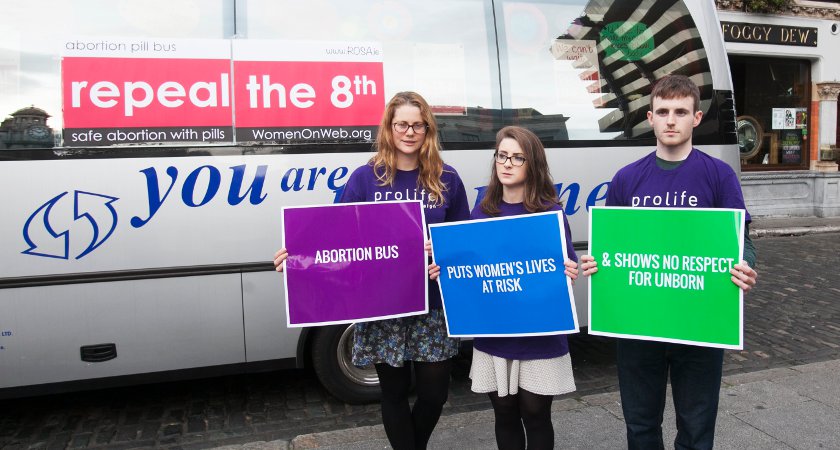THE FOUNDER of a British based charity which helps pay for pregnant women from Ireland seeking abortions in Britain believes Brexit will make it even more difficult for those in an already "barbaric" situation.
The Abortion Support Network (ASN) says it helps women who have been raped, are victims of abuse or have a baby with fatal fetal abnormality and can't avail of treatment in Ireland.
"We don't know yet what implications Brexit will have for Abortion Support Network clients. The good news is, nothing's changing in the immediate future and we're continuing to answer calls, provide information and fund abortions for people in Ireland, Northern Ireland and the Isle of Man who need them," said Mara Clarke founder and director of the ASN.
"The bad news is, that providing these services might become more difficult in future, but then it's not like it's ever been really super easy to do this," she added.
Pro-choice activists are concerned that Brexit could add further levels of bureaucracy at a point when time is of the essence.
Many women from Ireland seeking terminations do so at the latter end of Britain's 24-week limit.
The reasons for this vary – some women are simply unaware they were pregnant, while others may have been unable to get the money they need together.
Issues are already complicated for asylum seekers who wish to travel to Britain for an abortion. Special documents need to be obtained so they can re-enter the State and finding a solicitor and the money to pay for one can be impossible for some, according to the Irish-based Abortion Rights campaign.
The bad news is, that providing these services might become more difficult in future, but then it's not like it's ever been really super easy to do this
"The sizeable number of non-EU Irish residents from places like Nigeria and the Philippines already face restrictions and routine torment at airports. On top of crisis pregnancy, they, along with asylum seekers and the undocumented, will potentially face yet another layer of racist bureaucracy and policing in both Britain and at home," said spokesperson Linda Kavanagh.
Theresa May's ascension to British Prime Minister has also alarmed pro-choice campaigners.
Mrs May was one of the first cabinet ministers to say she believes the time limit on abortion should be reduced. She previously said it was her "personal view" that the legal limit for abortions should be cut from 24 to 20 weeks.
"Our clients are already delayed, delayed by having no money, delayed by fact that getting care means international travel. An international trip requires more planning," said Mara Clarke of ASN.
She also decries that women are waiting around "willy nilly". She points to Marie Stopes International study from 2005 which found the top four reasons women have terminations between 20 and 24 weeks are due to factors such as raising children alone, being depressed or using drugs, conflict with a male partner or domestic violence.
Over 4000 women travelled from Ireland to England and Wales for abortions in 2015.
Figures released by the UK Department of Health in May show that Irish women account for 82.6 per cent of abortions provided to non-British residents in the same year.
In June, the United Nations ruled that Ireland’s ban on abortion subjected a woman to discrimination as well as cruel, inhuman or degrading treatment, after she was forced to travel to Britain to obtain a termination.
The report, compiled by independent experts from the organisation’s human rights committee, also called for Ireland’s prohibition to be reversed, including reforming the constitution if necessary.
The Irish Government has now established a "citizens assembly" to examine the issues surrounding Ireland's strict abortion laws and discuss repealing the 8th Amendment to the Constitution, the act which recognises the right to life of the unborn child.
A "citizens assembly" was the first formal step on the road to Ireland's successful referendum on gay marriage.
What Brexit means for ASN
Posted by Abortion Support Network on Friday, 24 June 2016
A clarification was made to this story on July 18, 2016. The story previously mentioned a US study from 2013. The study was actually carried out by Maris Stopes International in 2005.


